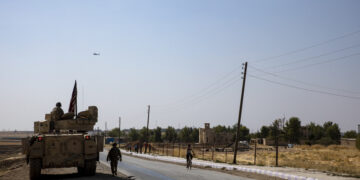August 28, 2025
Turns out leaving Afghanistan did not unleash terror on U.S. or region

It will be four years since the U.S. withdrew from Afghanistan on Aug. 30, 2021, ending a nearly 20-year occupation that could serve as a poster child for mission creep.
What began in October 2001 as a narrow intervention to destroy al-Qaeda, the terrorist group that perpetrated the 9/11 attacks, and topple the Taliban government for refusing to hand over al-Qaeda’s leader, Osama bin Laden, morphed into an open-ended nation-building operation that killed 2,334 U.S. military personnel and wounded over 20,000 more.
But the failure of the war to deliver on its maximalist platitudes of bringing peace, democracy, and women’s rights to a nation that rejected them has obscured two of the most important lessons from the conflict and its end: first, the U.S. need not occupy a country indefinitely to prevent terrorism against the U.S. homeland. Second, the United States will severely punish any government that allows terrorist groups to attack U.S. targets from its territory, and the threat of U.S. punishment is a highly credible deterrent against state-sponsored terrorism.
Those two facts should be shouted from the rooftops of the nation’s capital any time members of the foreign policy establishment claim that the U.S. must deploy troops to far-off locales to prevent terrorist “safe havens” from emerging.
More on Middle East

Featuring Daniel DePetris
August 5, 2025







